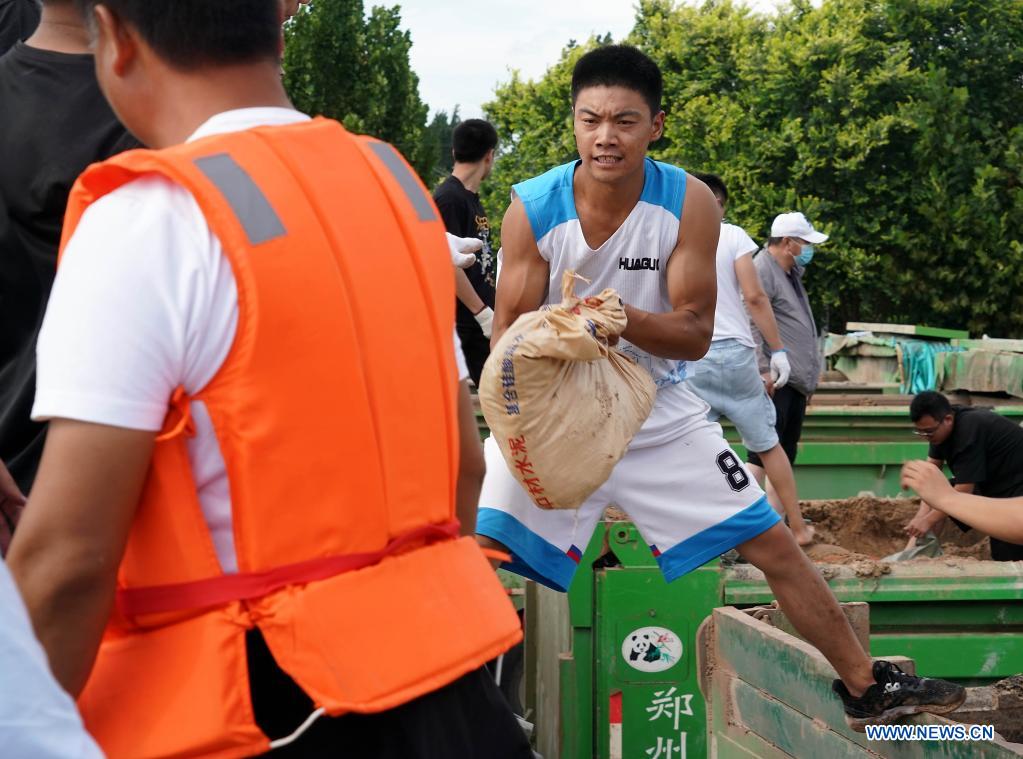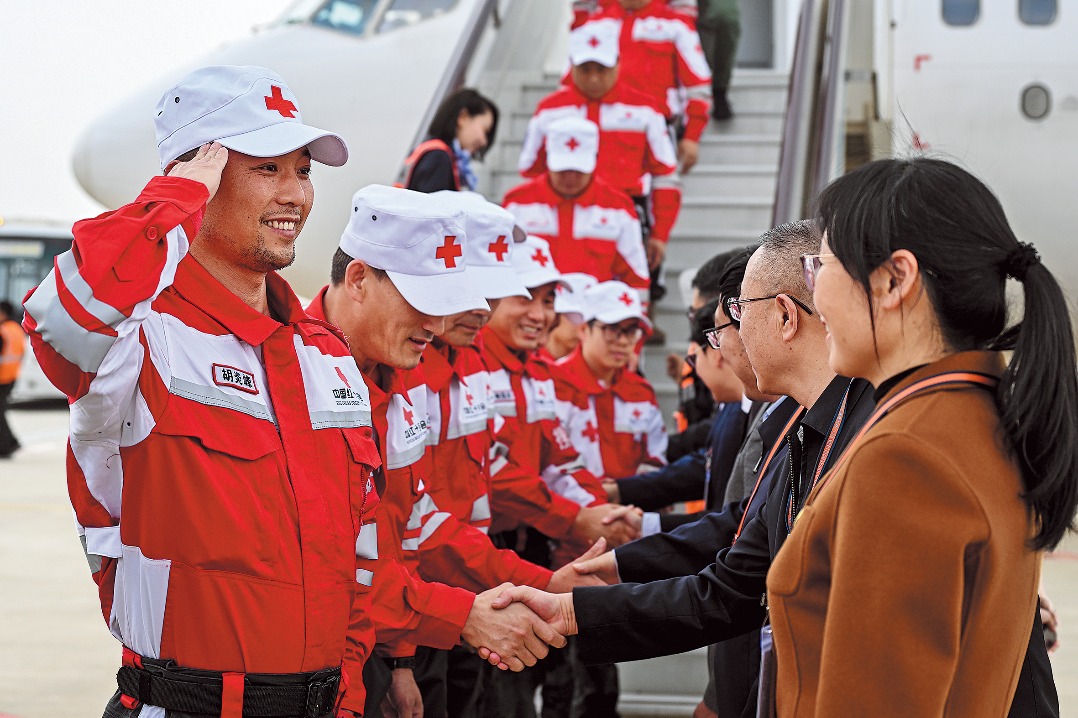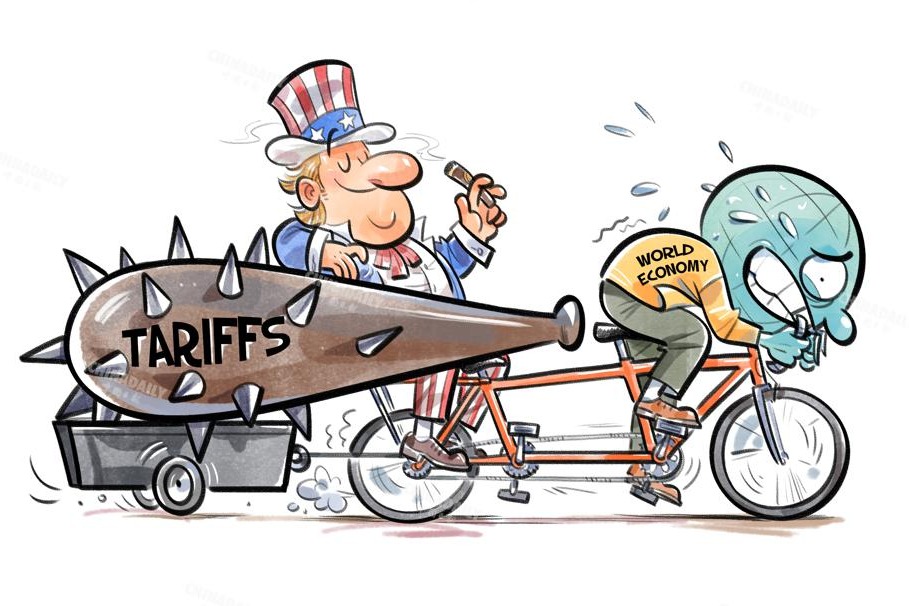Rise of the everyday hero at Henan floods
By Hayat Bangash | chinadaily.com.cn | Updated: 2021-08-02 17:01

With videos of common people helping those in distress during the Henan floods going viral on Chinese social media, a new type of hero has emerged. No cape, no flashy symbols and no mask – the everyday hero saved lives with the power of his hands and the intellect of his mind.
Although rescue authorities did a commendable job of mitigating the overall impact of the flood, first responders in many emergency situations were the bystanders who could think of only one thing: Save as many people as possible.
When the flood struck, urban areas inundated so quickly that people found themselves caught in their commutes. Some got stuck in subway trains, some in buses, and some in their cars. The citizens who came to their aid hardly had any training in life-saving techniques. What they were equipped with, instead, was compassion for humanity.
There were doctors pulling people out of the water after being pulled out themselves, roadside shop owners who had been salvaging their stock and mechanics, hairdressers and students who just happened to be in the area. Many times, a chain reaction was triggered where the rescued joined in to extricate others who had been trapped with them.
These everyday heroes took to saving lives without any heed to their own safety or belongings. Unlike heroes in the movies, they did get hurt. Sharp objects flowing in the water and the breaking of glass panes in cars, buses, and subway trains left them bruised, with some getting their bones fractured. Many lost their phones and wallets.
And these heroes plunged into raging waters instinctively. They saw people would drown if not helped because many in need did not know how to swim. Those who knew were stranded in places they could not get out from without assistance. Sometimes even the volunteers did not know how to swim. But the sight of misfortune forced them to put their own lives on the line.
Many of the rescuers had received help in the past as well. A person who saved 71 people in Gongyi city was once rescued along with his mother and children by fellow villagers in an earlier flood. With incidents like that at the back of their minds, their reciprocal spirit sprang to action and pushed them to pay back what society had done for them. Some had suffered losses in this very flood, and when they saw others at the same risk, they immediately stepped forward.
A remarkable role was also played by volunteers of nonprofits and civilian rescue teams. Members of these organizations are regular citizens with private jobs and businesses but when natural disasters strike, they leave their lives of comfort forthwith. Working extended hours every day at the Henan floods likewise, they immensely augmented the efforts of government agencies.
Some of these volunteers coordinated the on-ground activities of their teams from their homes. They assisted local authorities in monitoring the flood water situation, identifying people in distress and managing the distribution of relief materials. This was no easy task either. With operations going on round-the-clock, their work schedule was extremely hectic with little time for rest or sleep.
From behind computer screens, another group of people put technology to another use. Employing collaborative spreadsheet documents, they formed "a bridge over troubled waters." Reports of trapped people were categorized and put into the documents with varying degrees of urgency. Volunteers and temporary shelters also were mentioned with contact numbers and specific locations.
The death toll remained strikingly low, owing to these innovative ideas of common people who wanted to serve their community. Time is the most crucial resource in such emergencies. By making full use of the rapid speed of technology, damage to life and property was significantly reduced. Many tech-savvy students are now considering taking up careers through which they can continue contributing to society.
On social media, "civilian heroes" remained one of the most commonly seen tags. Through videos and stories of the everyday heroes, tributes from all over the country poured in under the tag. The humanitarian spirit went instantly viral, inspiring more and more people from far-off areas to join the relief efforts physically, through online assistance or donations.
The Chinese way of thinking in collective terms is a major factor behind the rise of everyday heroes. The country's unique societal culture first thinks of the overall good and service to others before serving the self.
The people seen doing selfless acts never did so in the hope of being known as heroes. They just happened to be at the right place at the right time. By putting their lives at risk for worthy reasons, they have certainly made their families and their nation proud. The flood might have caused some financial loss but it has reinforced the common man's trust in the community.
Hayat Bangash is a freelance columnist on international affairs with degrees in business administration and war studies.
The opinions expressed here are those of the writer and do not necessarily represent the views of China Daily and China Daily website.
If you have a specific expertise, or would like to share your thought about our stories, then send us your writings at opinion@chinadaily.com.cn, and comment@chinadaily.com.cn.
























